ASTRaL
Asynchronous telemedical care in rural areas (Versorgungssicherungsfond SH)
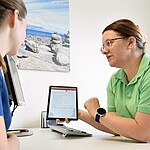
Against the background of the experiences with the past pandemic months, family doctors increasingly wish to be able to communicate with colleagues and/or patients via privacy-compliant messaging apps. The aim of the project is the evaluation of asynchronous telemedical procedures, which are implemented for the purpose of improving access to specialized care in rural areas.
App-based support for the care of migraine patients in Schleswig-Holstein
(Versorgungssicherungsfond SH)
Two out of three adult Germans suffer at least intermittently from headaches, and almost 18 million are affected by migraines throughout Germany. An app-based self-training program in addition to medical care and statewide training courses for physiotherapists are to support migraine sufferers in Schleswig-Holstein in dealing with the disease in the future.
DNA Computing
Useful building material in nano size
According to current knowledge, DNA has unique properties that make it a useful nanoscale building material. The use of DNA makes it possible to perform computations to implement conditional behavior of particles. This can be used to develop efficient methods to detect and possibly treat diseases in a smart way.
EUVECA
European network for professional education, training and continuing education in the health care sector (Erasmus+)
EUVECA is an ERASMUS+ project that aims to support the necessary innovation and development of the healthcare sector. It aims to identify, train and ensure future-oriented competences within the sector. To achieve this, regional competence centers will be established in seven European regions, which will then work together in a European network.
FLEXLAB
Flexible Skills Lab Architecture (Stifterverband & Dieter Schwarz Stiftung)
"Flexible Skills Lab Architecture" (FLEXLAB) is a "space lab for space labs" and provides an environment for the design and model testing and evaluation of intelligent, hybrid learning environments consisting of analog and digital components. Through modular infrastructure and furnishing as well as technical tools to support design, space labs can be designed and tested here.
HySkiLabs
Teaching and learning health in hybrid skills labs (Foundation Innovation in der Hochschullehre)
The University of Lübeck has a clear focus on medicine and health alongside life sciences and computer science. In the area of online teaching, the university is well placed in terms of training cognitive competencies. This is to be extended to action competencies in the project: The university skills labs for medicine and health are to be prepared for hybrid teaching by uniformly upgrading them with hardware and software.
KIBA
Kl-assisted motion analysis and therapy (EFRE)
The goal of the investment project with funding from the REACT-EU funding initiative of the European Regional Development Fund (EFRE) is to establish an infrastructure in a particularly adaptable laboratory environment for holistic motion analysis and therapy optimization with a focus on walking, based on AI-supported rehabilitation robotics. The multimodal motion acquisition and analysis, the gain of knowledge by means of explainable AI and the optimized therapy by intelligent rehabilitation robotics aimed at thereby are the milestones of the project. The strong interdisciplinary network within the project addresses the necessary prerequisites for precise diagnostic and therapeutic procedures in times characterized by the pandemic effects on the healthcare system.
LABORATORIUM
AI-supported individual learning assistance in the skills lab (Bund-Länder-Förderinitiative)
MOMENTUM
Mobile medical technology for integrated emergency care and accident medicine (BMBF)
The aim of the MOMENTUM project is to develop and evaluate suitable concepts and technologies for networking emergency medical treatment along the process chain from the emergency scene to the hospital. The motivation of the project lies in an improvement of the information flow between the helpers at the emergency scene and specialists in the emergency room or the operations center.
NaBoCom
Connecting in-body nano communication with body area networks (DFG)
PainMonit
Multimodal platform for pain monitoring in physiotherapy (BMBF)
Although accurate pain management is essential in a wide variety of medical contexts, pain assessment often remains an obstacle (for example, in coma patients). The PainMonit project seeks to create an automated objective system for detecting a level of pain based on physiological sensor data to provide assistance to patients, physicians, and clinicians.
PASBADIA
Patient-oriented smartphone-based diagnostics (Joachim Herz Foundation)
The PASBADIA project is investigating the extent to which a general practitioner can use a diagnosis tool supported by artificial intelligence (AI) to support the care of eye diseases close to home.The aim of the project is the diagnosis of eye diseases close to home by general practitioners in order to optimize ophthalmological care in rural areas.
PiTiPS
Participation and co-creation for innovative technologies for informal caregivers and communities of care (BMBF)
In the accompanying project PiTiPS, expertise from research and practice (social, nursing and behavioral sciences, participation and technology research) is bundled in order to systematically integrate the diversity of informal care into research and design processes. The focus is on questions concerning conditions for success and barriers to participation in the development of socio-technical innovations.
Primary Doctor's Office of the Future
Telemedicine approaches for the primary care of the future (CISCO)
In this project, telemedical approaches for the primary care practice of the future will be scientifically evaluated. For this purpose, it will first be determined which telemedical solutions can bring additional benefits to care from the perspective of the users. At the same time, determinants for a demand-oriented implementation of these solutions in care close to home will be identified.
ReNaApp
The aftercare app for breast cancer patients
Mobile health offers, i.e. offers that support healthcare electronically with the help of mobile devices, are increasingly becoming the focus of (research) interest. The aftercare app for breast cancer patients is based on the evaluated aftercare concept 'new credo' and supports breast cancer patients in continuing the physical activities learned in rehabilitation in everyday life at home.
Routing with nanobots
Medical treatment with nanobots in the body
Medical treatment with nanobots in the body promises a wide range of new possibilities. One advantage of nanobots is their locality: they can act very precisely at a specific point in the body without burdening the rest of the system. However, their size is also a challenge, as a single nanobot can only have very limited capabilities, both technical and physical. To accomplish large tasks, nanobots must work together.
SAM-SMART
Security Assistance Manager for the Smart Home

SAM-Smart stands for "SicherheitsAssistenzManager" (Safety Assistance Manager), which is designed to assist consumers with "tedious" and "error-prone" safety tasks without restricting their autonomy. The final product should proactively warn of possible safety risks in an unobtrusive but clearly visible way - and interact with consumers in a natural way using speech. Its ultimate aim is to retrieve detailed, comprehensible information on the potential threat. The project seeks to investigate and develop cost-effective security solutions and automated AI-based corrective measures for low-quality products for the mass market
SENSE
Systemic nutritional medicine (DAMP-foundation)
Advances in biomedical research allow precision medicine approaches in a plethora of different disease entities. So far, nutritional medicine has not benefited sufficiently from this development, despite the high relevance of nutrition as a pathophysiological factor for diseases of civilization. The SENSE project aims to demonstrate that it is possible to predict the individual body's response to defined foods and meals.
Simulationframework
Research on body-internal networks
While research and development in the field of sensor networks and body area networks has reached increasing maturity in recent years, networks of nanodevices in the body represent a new and fascinating research direction. The vision of these networks is that nanodevices patrol the body, taking measurements wherever necessary and sending the collected data to the outside world. In this project, building on the established network simulator ns-3, a simulation framework is developed that integrates certain aspects in its model.
V-T-Flow
Team flow and team effectiveness in virtual teams (DFG)
Advances in information and communication technology have created the possibility for virtual (team) work. Due to globalization and also the COVID-19 pandemic, more and more teams are working together virtually. This creates new challenges that require the promotion of team effectiveness especially in virtual teams. This will be researched in the DFG-funded project using the concept of team flow.

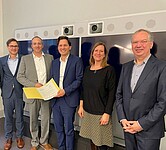
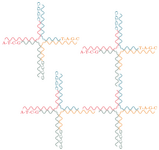
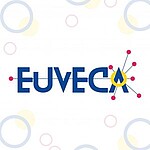
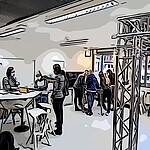
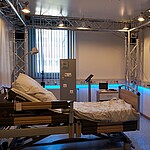
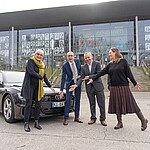
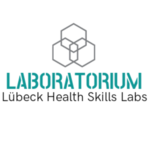

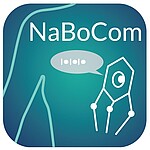
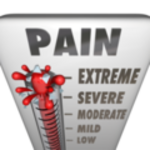


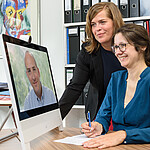

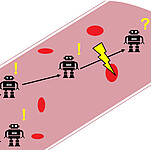

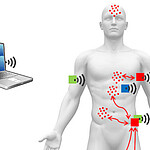


![[Translate to english:] Link COPICOH [Translate to english:] Link COPICOH](/fileadmin/_processed_/9/1/csm_LI-In-Bug_8ed46db0dc.png)
![[Translate to english:] Link COPICOH [Translate to english:] Link COPICOH](/fileadmin/_processed_/1/b/csm_vimeo_icon_white_on_blue_rounded_b79e632cf7.png)